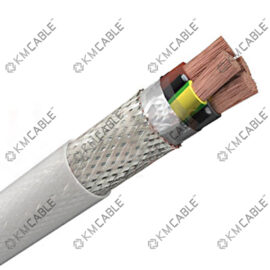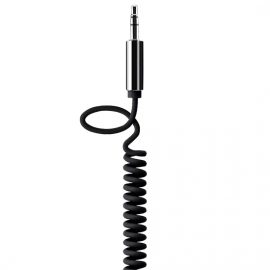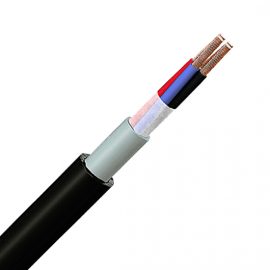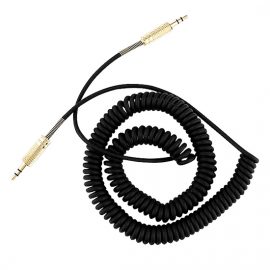
| code | Multi-Core |
|---|---|
| Color | customized |
| Conductor | copper |
| Temperature (°C) - flexing | -5℃~70℃ |
| Core | Multi |
| MOQ | 300M/Roll |

| code | Multi-Core |
|---|---|
| Color | Black, Red |
| Conductor | copper |
| Temperature (°C) - flexing | -25°C to +85°C |
| MOQ | 300M/Roll |

| code | Multi-Core |
|---|---|
| Color | Black, Red |
| Conductor | copper |
| Temperature (°C) - flexing | -25°C to +85°C |
| MOQ | 300M/Roll |
| Core | Multi |

| code | Multi-Core |
|---|---|
| Color | Black, Red |
| Conductor | copper |
| Temperature (°C) - flexing | -25°C to +85°C |
| MOQ | 300M/Roll |
| Core | Multi |
Speaker cable
Speaker Cable, also known as speaker wire, is used to make the electrical connection between loudspeakers and audio amplifiers.
Modern speaker wire consists of two or more electrical conductors individually insulated by plastic (such as PVC, PE or Teflon) or, less commonly, rubber. The two wires are electrically identical, but are marked to identify the correct audio signal polarity. Most commonly, speaker wire comes in the form of zip cord.
Wire material
Copper is the most widely used material for speaker cable due to its low cost and low resistance. However, copper does oxidise so it needs to be well covered and insulated. When exposed to air, pure copper reacts to creating copper oxide which covers the exposed surface; this creates a barrier between the cable and the speaker/ amplifier therefore can weaken connections. Silver is slightly less resistive than copper meaning a thinner gauge will still offer a lower resistance, however as you might have guessed silver is expensive so a thicker copper wire will actually still be cheaper to buy. Gold however does not oxidise so it can be used for open terminations but as it has a higher resistivity to copper or silver it is rarely used as speaker cable. As with all metals, the purer the wire used, the higher the cost (per metre). Many different levels of purity are available for cables, and whether or not this brings a significant benefit to the audio is down to personal preference and for you to decide for yourself.
Categories
- 0.6/1 kv Power Cable (17)
- LS0H/LSZH cable (2)
- PVC Cable (3)
- Rubber Cable (9)
- XLPE cable (4)
- Automotive wire (39)
- American standard wire (9)
- Car Battery Cable (34)
- Euro standard wire (12)
- EV Cable (8)
- Japanese standard wire (7)
- Coil cable (34)
- PUR cable (12)
- PVC cable (3)
- Rubber cable (9)
- Spiral cable assembly (10)
- Flexible control cable (2)
- Genie Parts (5)
- Industrial Wire Cable (33)
- CCC wire (5)
- CE Cable (3)
- Data cable (6)
- Drag chain cable (7)
- Robot cable (2)
- Servo cable (3)
- Special cable (3)
- UL wire (3)
- Media Cable (5)
- Microphone Cable (1)
- Speaker cable (4)
- Other (4)
- Ready to Ship (23)
- Single Core Cable (21)
- CE certificated cable (7)
- Drag chaine cable (2)
- Photovoltaic cable (5)
- PUR flexible cable (3)
- Solar Cable (7)
- UL certificated cable (3)
- Trailer Truck Cable (26)
- Coil Cable Assembly (16)
- Trailer cable (10)
- Wire harness for industry (7)
Producer
Price

As direct sale from our factory, we offer bellow benefits:
- Best price on the market guaranteed !
- The option to modify the product, such as the color, the length, you name it!
